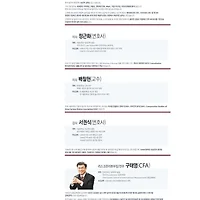삼성전자가 조셉 라이딩 일리노이대 공대교수가 14년전 특허출원한 반도체 수명연장 -반도체 성능향상기술을 도입하기로 하고 계약을 마쳤답니다
라이딩교수는 '14년전에 개발된 기술이 마침내 반도체 생산에 적용되게 돼 다소 놀랍다'며 기쁨을 표했고
일리노이대는 삼성전자를 제외한 다른 반도체 업체들도 자진해서 라이센싱 계약을 체결해 주기 바란다'고
말했습니다
1996년 1월 16일 특허출원돼 1999년 2월 16일 특허를 받은 이 기술은 라이딩교수와 이대학 칼헤스 교수가
개발했으며 한국인으로 추정되는 이진주씨[인텔연구원-포스닥]도 기술개발에 참여한 것으로 알려졌습니다
* 특허내용 : Deuterium-treated semiconductor devices Joseph W. Lyding et al
US Patent number: 5872387
=============================================================================
Samsung licenses U. of Ill. chip technology
URBANA, Ill. - Samsung Electronics has signed a deal to license technology developed more than a decade ago by a University of Illinois professor that extends the life of silicon chips.
The university announced the deal this week.
University of Illinois professor Joseph Lyding says he's pleased and a little surprised to see his technology licensed for the first time 14 years after he developed it.
The technology allows chip makers to substitute deuterium (doo-TEER'-ee-um) for hydrogen in their manufacturing process. Hydrogen can be relatively easily knocked off a silicon surface. That shortens the life of a chip.
The university hopes other companies follow Samsung. That could lead to millions of dollars in revenue for the school.
Information from: The News-Gazette, http://www.news-gazette.com
원본출처 http://www.chicagotribune.com/news/local/wire/chi-ap-il-uofillinois-samsu,0,2864572.story
=========================================================================================================
Idea pays off for UI, prof with deal with Samsung
By Don Dodson
Thursday January 28, 2010
URBANA – Joseph Lyding says he's "pleased and a little surprised" that the semiconductor technology he helped develop 14 years ago has finally been licensed.
The University of Illinois announced Tuesday that Samsung Electronics has been licensed to use the patented technology that can extend the life – or improve the performance – of silicon chips.
The technology involves the use of deuterium, a nonradioactive isotope of hydrogen, in processing the chips.
The UI hopes other electronics companies follow Samsung's lead and sign similar licenses. If so, the university could enjoy a substantial revenue stream.
"The potential is in the millions, from all the potential licensees," said Mark Kaczor, senior technology manager for the UI's Office of Technology Management.
The license sprang from the work of Lyding, a professor of electrical and computer engineering; Karl Hess, a professor emeritus now living in Hawaii; and Jinju Lee, a postdoctoral researcher now working for Intel Corp.
In the early 1990s, Lyding did fundamental research on the differences of hydrogen and deuterium on silicon surfaces. Later, he and his colleagues sought to find out how those findings might affect silicon-chip technology.
Hydrogen had conventionally been used in the processing of silicon chips. But hydrogen tends to get knocked off silicon surfaces during an electrical charge, decreasing the chip's performance.
Lyding and Hess tried substituting deuterium, an isotope that's heavier than hydrogen. They found it stayed bonded and improved the lifetime of chips by a factor of 10 to 50.
Lyding said there was "a flurry of activity" in 1996 and 1997, after those findings came out. Several companies published papers confirming the results, and other researchers got patents that built on their discoveries.
Then things "got quiet" as companies did internal development.
Kaczor said it's not surprising it took a while for Samsung, the second-largest electronics company in the world behind Intel, to sign a license.
"A lot of our technologies are very cutting-edge, and it takes industry a while to catch up," he said. "That was true of deuterium, which was hailed at the time as revolutionary."
As electronic devices get smaller, the use of deuterium has become more necessary, Kaczor said.
It wasn't needed as much when devices became obsolete quickly, he said. But as longevity becomes more important, companies give more attention to the use of deuterium in processing chips.
According to Kaczor, Hess believes the technology will be most useful in cell phones, where microprocessors run many functions – including video displays, audio applications and the circuits that dial telephone numbers.
Lesley Millar, director of the UI's Office of Technology Management, called Samsung "the first domino to fall."
The use of deuterium in processing chips is "a widely known technology that's been around a while," she said. "Because we have a strong patent portfolio, we have high hopes ... that other companies would like to license the technology."
Millar said the electronics market is huge, and deuterium technology represents only a small part of that.
"But when you talk about billion-dollar markets, there's potential for millions of dollars of revenue," she said.
The university owns five U.S. patents and one South Korean patent covering the use of deuterium in semiconductor devices. Under the license, Samsung can use the technology for the lifetime of the patents.
원본출처 : http://www.news-gazette.com/news/print/2010/01/28/idea_pays_off_for_ui_prof_with_deal_with_samsung'특허 ETRI등' 카테고리의 다른 글
| 지난해 특허출원 LG가 한국기업중 1위, 전세계 7위 (0) | 2010.02.10 |
|---|---|
| 지난해 특허출원 한국 4위, 불과 백20건차이로 중국 제쳐 (0) | 2010.02.10 |
| 휴대폰소송 ETRI-SPH AMERICA-ASKVERITAS : BEFORE & AFTER (0) | 2010.02.01 |
| ETRI 미활용특허 1건당 평균 이전료 2천백50만원 - 2008 국정감사 원문 (0) | 2010.01.18 |
| [EDITORIAL] Protect patents - 코리아헤럴드 기사제공 (0) | 2010.01.16 |
 5872387_Deuterium_treated_semiconductor_.pdf
5872387_Deuterium_treated_semiconductor_.pdf

